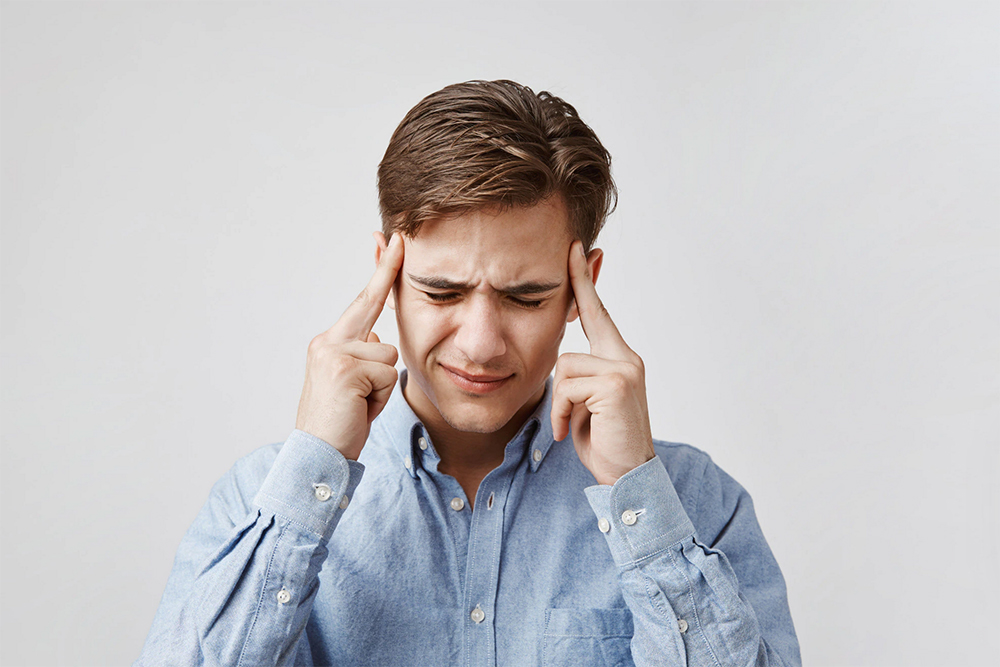Migraines are one of the most painful and debilitating medical conditions, causing a constant, pulsing headache for hours or even days. For military men and women, combat and the threat of it is a constant. With deployments, long travel, and exposure to possibly harmful chemicals, military men and women are at a higher risk for migraines. Military personnel is also more likely to suffer from migraines, have more severe migraine attack, and have more frequent auras. And although they are common, migraines can be disabling.
While migraines can be triggered by many different factors, including certain foods, hormonal changes, and sleep deprivation, many people with migraines report they were first diagnosed after sustaining an injury during military deployment.
Headaches After the Battlefield
Veterans often suffer from migraines after their time in the military. Migraines occur because of changes in the body’s blood flow, and a characteristic that is common in veterans is a history of migraines in family members. The Department of Veterans Affairs (VA) reports that 3.4 percent of veterans had migraines in 2012. These are often recurrent migraines, a condition in which a person experiences a migraine headache at least 15 days a month over the course of a year.
Headaches, migraines, and other types of pain are often linked to stress or tension. Military veterans, however, are often at a higher risk for headaches and migraines due to the training and exposure they’ve witnessed. Because some military members also suffer from post-traumatic stress disorder (PTSD), the triggers for headaches can become exacerbated, and the headaches themselves can become more severe.
Military veterans suffer from migraines at higher rates than civilians, with active-duty personnel experiencing 11.9% compared to 6.7% of the veteran. Veterans suffer from migraines and other disorders at a higher rate than the general population. While doctors aren’t sure why some believe the stress of military life contributes to a higher migraine rate. In addition, traumatic events that aren’t dealt with can trigger migraines and other headaches in veterans. Since migraines often target one side of the head and leave behind other symptoms, such as sensitivity to light, nausea, and sleep disturbances.
Alternative Treatments
Traditional treatment for migraines typically includes medication, lifestyle changes, and possible surgery. However, some migraine sufferers have found that alternative treatments can relieve their symptoms. Many veterans turn to alternative therapies to take care of their migraines. Some of these treatments include:
*Acupuncture
Acupuncture is one alternative treatment that has been proven to be an effective treatment for migraines. It is also used to help lessen symptoms, ease pain, and reduce related disability.
Acupuncture is a technique involving the insertion of thin needles into precise body points, which can help manage pain, reduce headaches, and stimulate blood flow. For military veterans who suffer from migraines, acupuncture is a more effective treatment since it targets the disorder itself rather than the symptoms of the pain. Acupuncture treatments are also safe and have few side effects, so veterans have no reason not to seek out the treatment.
*Massage Therapy
The act of rubbing and kneading the muscles is believed to increase blood circulation, which can promote healing in the body. This therapy has been in practice for hundreds of years, especially in Asian countries, and has gained increasing popularity as a form of alternative treatment for veterans who suffer from migraines.
*Dietary Changes
If you are a veteran with migraines, alternative treatments may help in managing them. Dietary changes for migraine can be a way to help relieve symptoms, including nausea, diarrhea, vomiting, and dizziness. The Dietary Approaches to Stop Hypertension (DASH) diet is one example of a diet that can help relieve migraine symptoms. The DASH diet may help by reducing blood pressure, reducing sodium intake, and decreasing dietary fat.
*Counseling Or Support Groups
Migraines can cause severe headaches, blurred vision, nausea, and vomiting, and they can last for hours or even days. While there is no cure for migraines, there are treatments offered, including medication, lifestyle changes, and counseling. Many veterans suffer from migraines, and these headaches can be debilitating. Thankfully, alternative treatments like counseling and support groups can help. Counseling or support groups for Alternative Treatments for military veterans who suffer from migraines provide education, emotional support, and strategies for managing migraines.
*Chiropractic Care
Chiropractic care is an alternative treatment for military veterans who suffer from migraines. Chiropractic care for military veterans often addresses neck pain and other musculoskeletal conditions, but chiropractic treatment for migraines also assists with pain management.
There are millions of veterans who suffer from migraines, and many of them turn to alternative treatments. These may include massage, meditation, acupuncture, chiropractic, aromatherapy and chiropractic, hypnosis, acupressure, and yoga. While some of these treatments can ease migraines, others can strain your wallet. If you’re looking for additional treatment options for migraine, you can check out migraine new treatment at Power.

